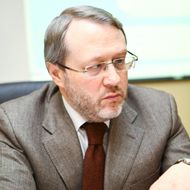Artificial Intelligence for Proactive Policy: A Letter from Leonid Gokhberg to ‘Nature’

As the situation with COVID-19 has shown, mistakes associated with insufficiently developed policy measures in medicine, science, education and other socially significant sectors of the economy are very costly for society. In the July issue of Nature, Leonid Gokhberg, First Vice Rector of HSE University and ISSEK Director, discussed the topic of the growing practice of making management decisions based on big data analysis.
In his letter, ‘Use AI to Mine Literature for Policymaking’, Leonid Gokhberg notes that the process of developing policy based on scientific evidence today is more complex than ever. Decision makers have many factors to consider: supply chain management, climate change, economic inequality, technological breakthroughs, misinformation, and more. Using artificial intelligence (AI) to analyze large volumes of text, he suggests, can put policy on a firmer footing.
Leonid Gokhberg, First Vice Rector, Director of the ISSEK, HSE

Advanced big-data and natural-language-processing models enable decision makers to look beyond conventional indicators and expert discussions. Millions of scientific articles, patents and market reports can be readily analysed to identify megatrends or fading topics, and to provide predictive opportunities.
Machine learning can create maps of national competencies and centres of excellence of science and technology. It will find weak signals and potentially disruptive ‘wild-card’ effects, and can perform ‘gap analyses’ to guide legislation. Such applications could help steer more-proactive policymaking.
Fighting the coronavirus pandemic requires the coordination of various teams with experience with AI. This is where the UNESCO Futures Literacy Network could be useful. ‘Otherwise, the mismatch between science policy and reality will cost us all even more in the future,’ warns Gokhberg.

